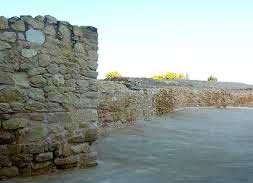Museums in Alicante
A vibrant city fully at one with its coastal nature, Alicante has been home to human settlements for three millennia. Once an important Carthigian outpost, Akra Leuca, as it was then known, changed hands during the Punic Wars, which ultimately saw the annihilation of Carthage and consequently turned Alicante into the Roman town of Lucentum – the city of lights: a truly appropriate name for a place that, still today, more than two thousand years later, still oozes splendour.

Alicante, the city of lights, is a place with endless opportunities where art and history can easily be combined with tapas and Spanish wine, where the exploration of the past can be done in a fun and interactive way, where leisure and history come hand in hand!
It is hardly surprising, then, that one of the most important cultural attractions in Alicante is its staggering Archaeological Museum, located at the old San Juan de Dios Hospital, where a mind-boggling collection of more than 80,000 pieces is expertly displayed to portray the intricacies of the different civilizations that have left their mark in the area, in what is, ultimately, an unavoidable homage to the richness of Mediterranean culture at large. Nevertheless, the ethos of the museum is far from the conventions that normally regulate archaeological exhibitions, adopting instead technologically enhanced techniques that add a modern, trendy and altogether exciting aspect to the experience.
Because Alicante is anything but a place stuck in time. Conscious of its heritage, the city is comfortable with its place in contemporary culture despite the tribute it overtly pays to its past. So much is evident from the focus given to contemporary art by one of the most relevant museums in Alicante: the MACA (Museo de Arte Contemporaneo de Alicante). Opened in 2010, the MACA consists of the Eugenio Sempere and the Juana Francés collections, with a strong focus on the work of Spanish artists but also a presence of renowned international painters such as Bacon and Chagall.
If you are in Alicante on holiday or triying to learn Spanish in Alicante, even, you cannot miss the chance to visit the Gravina Museum of Fine Arts (MUBAG), an outstanding institution with a tremendous collection that dates all the way back to the XVI century. The focus of the MUBAG is far more comprehensive than that of the MACA, tracing the history of art through a vast stock of works from both domestic and international artists. As a matter of fact, the stored resources of the museum are such that they allow for the permanent collection in display to be rotated continuously: a rare phenomenon among museums of Alicante and anywhere else.

Deeply influenced by its geographic location, Alicante revels in the consequences and benefits of living the charming life by the sea. On the shoreline, the city still is largely defined by the silhouettes of its imposing commercial port to the south. However, a tad closer to home, the coast is adorned with the luxurious splendour of its swanky marina, crowded with yachts and sail boats of all sizes. And then there is the long, continuous, almost endless strip of bays, where, as any Alicante city guide will tell you, you can relax, cool down from the heat or the stress at work, and simply chill until you can positively say the day is over.
Which means the time has arrived to explore the charms of Alicante by night. Which are neither few nor unattractive. Steeped in the cultural traditions of the Iberian Peninsula and the Mediterranean Sea, Alicante remains a hub of non-stop activity well into the wee hours of the morning. Because not all cultural activities in Alicante are high-brow – especially during the summer months, when one of the most famous expressions of popular culture comes to dominate the calendar:
It is nothing other that the celebration of the feast day of Saint John on the 24 of June, the popular Fogueres of Alicante, where enormous dummies are burned at a stake while crowds stand around or near the ensuing bonfires, eating, dancing and drinking at large. There is a small museum in Alicante devoted to the tradition of the Fogueres but the best way to enjoy these celebrations is to take part in them and, consequently, to be part of history.



